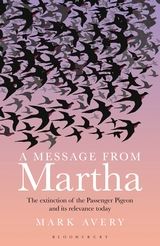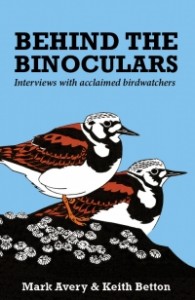 I review quite a lot of books on this blog, and I’ve reviewed many books elsewhere over the years too. I’ve tried to adopt an approach of describing what I like or dislike about a book – the way it’s written, illustrated and the arguments inside it – rather than saying that it is a good or bad book. I treat books like wines – I really prefer reds to whites, and I don’t like most Italian reds, but that doesn’t make them bad wines, it just means that they are not to my taste.
I review quite a lot of books on this blog, and I’ve reviewed many books elsewhere over the years too. I’ve tried to adopt an approach of describing what I like or dislike about a book – the way it’s written, illustrated and the arguments inside it – rather than saying that it is a good or bad book. I treat books like wines – I really prefer reds to whites, and I don’t like most Italian reds, but that doesn’t make them bad wines, it just means that they are not to my taste.
Some books aren’t to my taste – I want to spit them out before I get to the bottom of the bottle on the last page. Others I love and I wish that the bottle were bigger when we reach the end.
And so, when it comes to reading reviews of the books I’ve written I try to take them in the same spirit.
 Fighting for Birds received uniformly good reviews (I can’t remember a bad one at all) and so that was just a boost to the ego – and an encouragement to write some more.
Fighting for Birds received uniformly good reviews (I can’t remember a bad one at all) and so that was just a boost to the ego – and an encouragement to write some more.
A Message from Martha got some very good reviews and a couple of bad reviews on each side of the Atlantic. Fair enough! What was interesting though, and supports my general point here, is that someone, somewhere, either in a review or in a comment directly to me, has said that their favourite chapter was Chapter X and someone else has said that Chapter X was the ‘worst’ chapter in the book – and that has been true of every chapter. Doesn’t that prove my point rather well?
 I was reminded of this last week when the Guardian published a new, and very favourable, review of Martha and yet described Chapter 2 as ‘a somewhat dry account’ of its biology. This was my fear when writing the book, that the biology of the bird (which is fascinating to some of us) might be a bit dull to others, and clearly I was right as far as this reviewer was concerned, but others, many others actually, have praised this same chapter very highly (and they certainly weren’t mostly biologists). This recent review in the Guardian really liked Chapter 4 of Martha which describes a journey around the former range of the Passenger Pigeon and which others have regarded as dull or padding!
I was reminded of this last week when the Guardian published a new, and very favourable, review of Martha and yet described Chapter 2 as ‘a somewhat dry account’ of its biology. This was my fear when writing the book, that the biology of the bird (which is fascinating to some of us) might be a bit dull to others, and clearly I was right as far as this reviewer was concerned, but others, many others actually, have praised this same chapter very highly (and they certainly weren’t mostly biologists). This recent review in the Guardian really liked Chapter 4 of Martha which describes a journey around the former range of the Passenger Pigeon and which others have regarded as dull or padding!
So, not only do some books appeal more to some people than others (how could that not be true?) but also some chapters of some books, my books anyway, appeal more to some than to others.
 And I was reminded of this again last week when Chris Smout’s review of Inglorious in British Birds described the last chapters as rambling whereas someone I met who said he’d just finished reading the same book, singled them out as ‘pulling everything together so well’. Well, there you go!
And I was reminded of this again last week when Chris Smout’s review of Inglorious in British Birds described the last chapters as rambling whereas someone I met who said he’d just finished reading the same book, singled them out as ‘pulling everything together so well’. Well, there you go!
And I’m so pleased that Inglorious is still the #1 best seller on Amazon UK in the category of ‘target shooting’ – and has been every day for over 10 weeks!
 Inglorious: conflict in the uplands by Mark Avery is published by Bloomsbury – for reviews see here.
Inglorious: conflict in the uplands by Mark Avery is published by Bloomsbury – for reviews see here.
Behind the Binoculars: interviews with acclaimed birdwatchers by Mark Avery and Keith Betton is published by Pelagic – here’s a review.
A Message from Martha by Mark Avery is published by Bloomsbury – for reviews see here.
Fighting for Birds: 25 years in nature conservation is published by Pelagic – for reviews see here.
[registration_form]
Hi Mark,
I personally really enjoyed A Message from Martha and thought you did a great job of explaining the impact of habitat destruction and hunting and why this was particularly bad news for a bird like the passenger pigeon. In fact I’d go as far as to say that this book has really awoken in me a desire to get more involved in conservation – something which up to now I’ve had no interest in.
With regards to the reviews – I think you’re right that some things interest one reader far more than another. For me I did think some of travels around america were a bit like padding but they were more than made up for by other bits of the book – and if another reader really enjoyed those bits then it just goes to show how enjoyment is subjective!
Pete
Peter – welcome! and thank you.